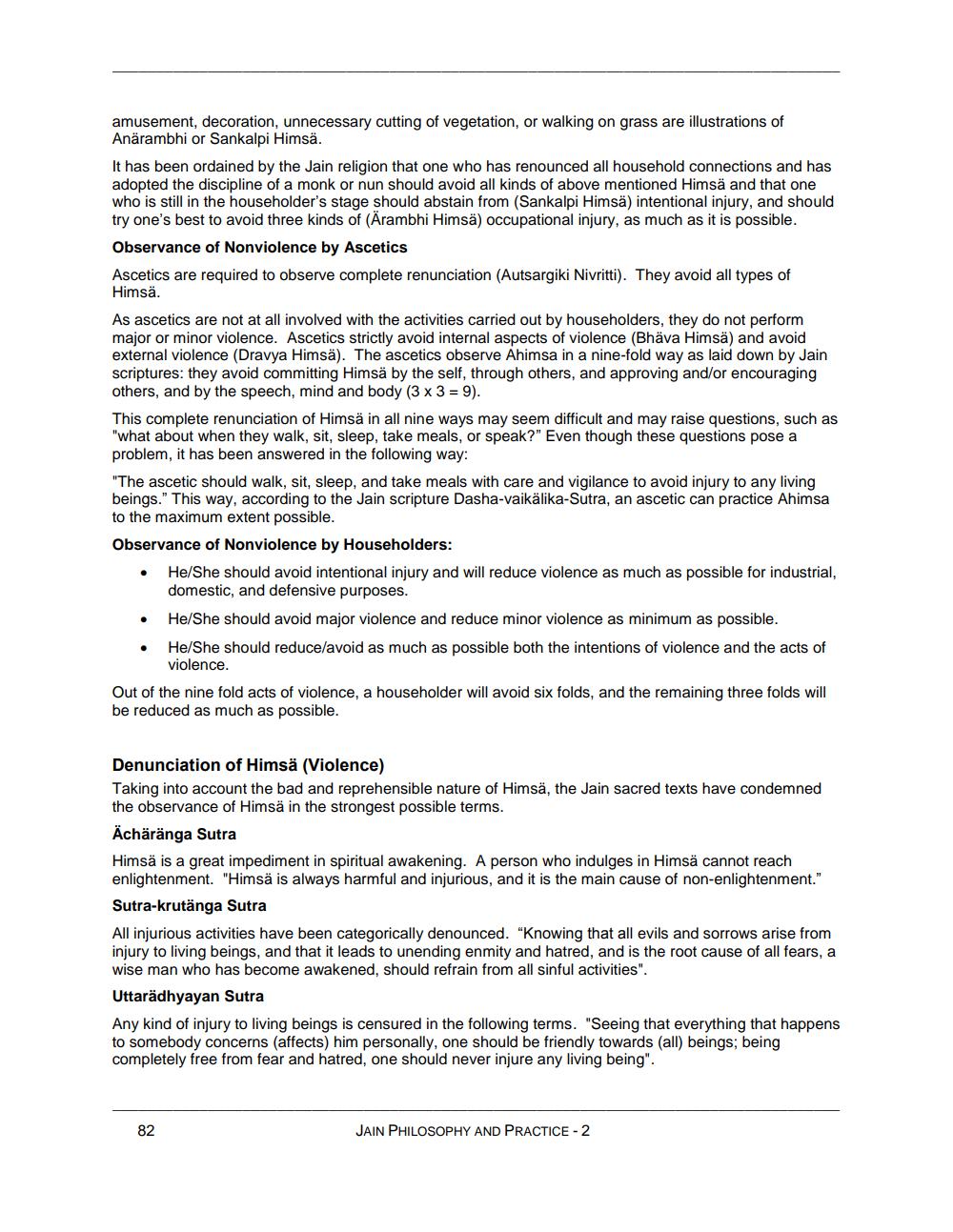________________
amusement, decoration, unnecessary cutting of vegetation, or walking on grass are illustrations of Anärambhi or Sankalpi Himsä.
It has been ordained by the Jain religion that one who has renounced all household connections and has adopted the discipline of a monk or nun should avoid all kinds of above mentioned Himsä and that one who is still in the householder's stage should abstain from (Sankalpi Himsä) intentional injury, and should try one's best to avoid three kinds of (Arambhi Himsä) occupational injury, as much as it is possible.
Observance of Nonviolence by Ascetics Ascetics are required to observe complete renunciation (Autsargiki Nivritti). They avoid all types of Himsä. As ascetics are not at all involved with the activities carried out by householders, they do not perform major or minor violence. Ascetics strictly avoid internal aspects of violence (Bhäva Himsä) and avoid external violence (Dravya Himsä). The ascetics observe Ahimsa in a nine-fold way as laid down by Jain scriptures: they avoid committing Himsä by the self, through others, and approving and/or encouraging others, and by the speech, mind and body (3 x 3 = 9). This complete renunciation of Himsä in all nine ways may seem difficult and may raise questions, such as "what about when they walk, sit, sleep, take meals, or speak?" Even though these questions pose a problem, it has been answered in the following way: "The ascetic should walk, sit, sleep, and take meals with care and vigilance to avoid injury to any living beings. This way, according to the Jain scripture Dasha-vaikälika-Sutra, an ascetic can practice Ahimsa to the maximum extent possible. Observance of Nonviolence by Householders:
He/She should avoid intentional injury and will reduce violence as much as possible for industrial,
domestic, and defensive purposes • He/She should avoid major violence and reduce minor violence as minimum as possible. • He/She should reduce/avoid as much as possible both the intentions of violence and the acts of
violence. Out of the nine fold acts of violence, a householder will avoid six folds, and the remaining three folds will be reduced as much as possible.
Denunciation of Himsä (Violence) Taking into account the bad and reprehensible nature of Himsä, the Jain sacred texts have condemned the observance of Himsä in the strongest possible terms. Ächäränga Sutra Himsä is a great impediment in spiritual awakening. A person who indulges in Himsä cannot reach enlightenment. "Himsä is always harmful and injurious, and it is the main cause of non-enlightenment." Sutra-krutänga Sutra All injurious activities have been categorically denounced. "Knowing that all evils and sorrows arise from injury to living beings, and that it leads to unending enmity and hatred, and is the root cause of all fears, a wise man who has become awakened, should refrain from all sinful activities". Uttarädhyayan Sutra Any kind of injury to living beings is censured in the following terms. "Seeing that everything that happens to somebody concerns (affects) him personally, one should be friendly towards (all) beings; being completely free from fear and hatred, one should never injure any living being".
82
JAIN PHILOSOPHY AND PRACTICE -2




